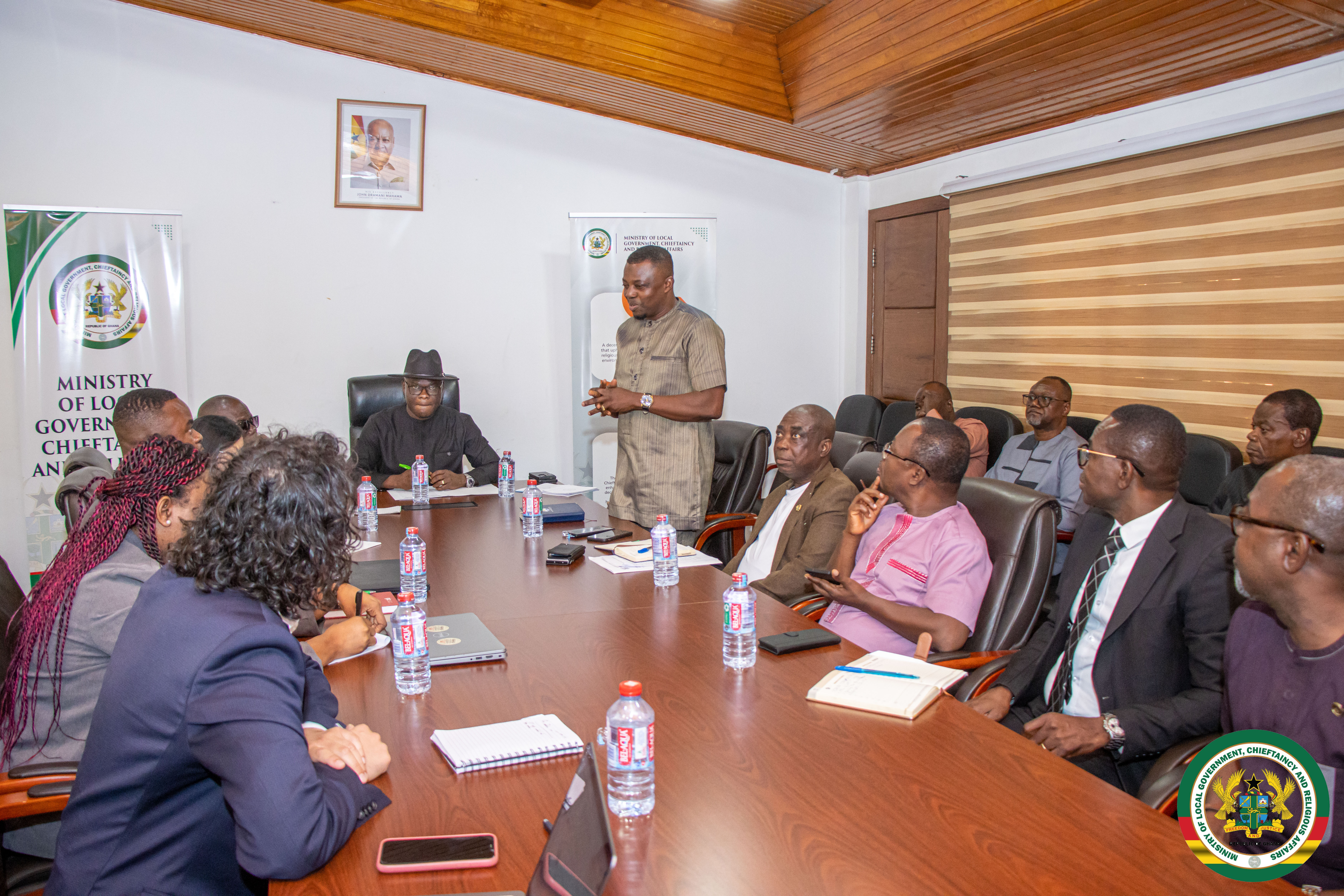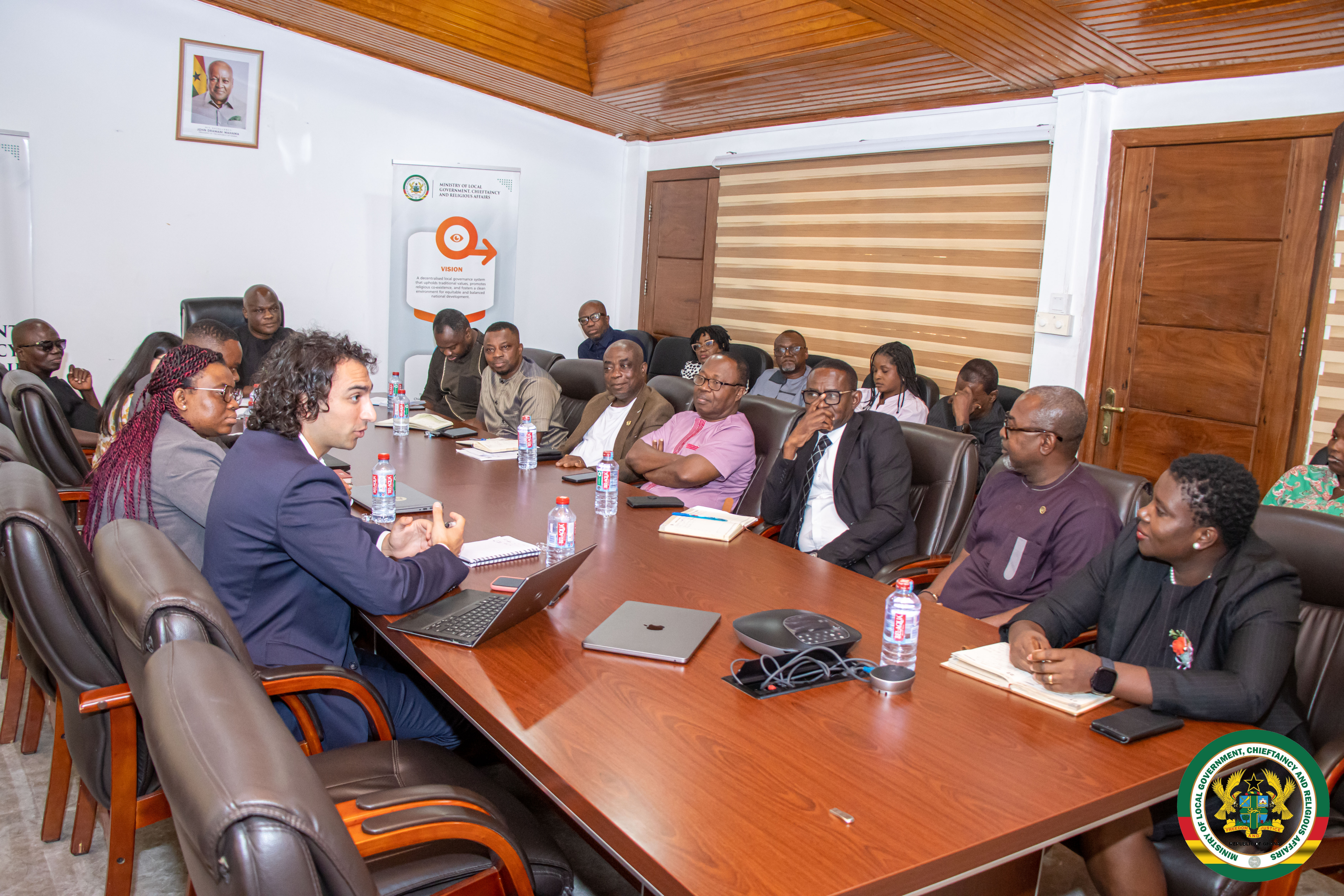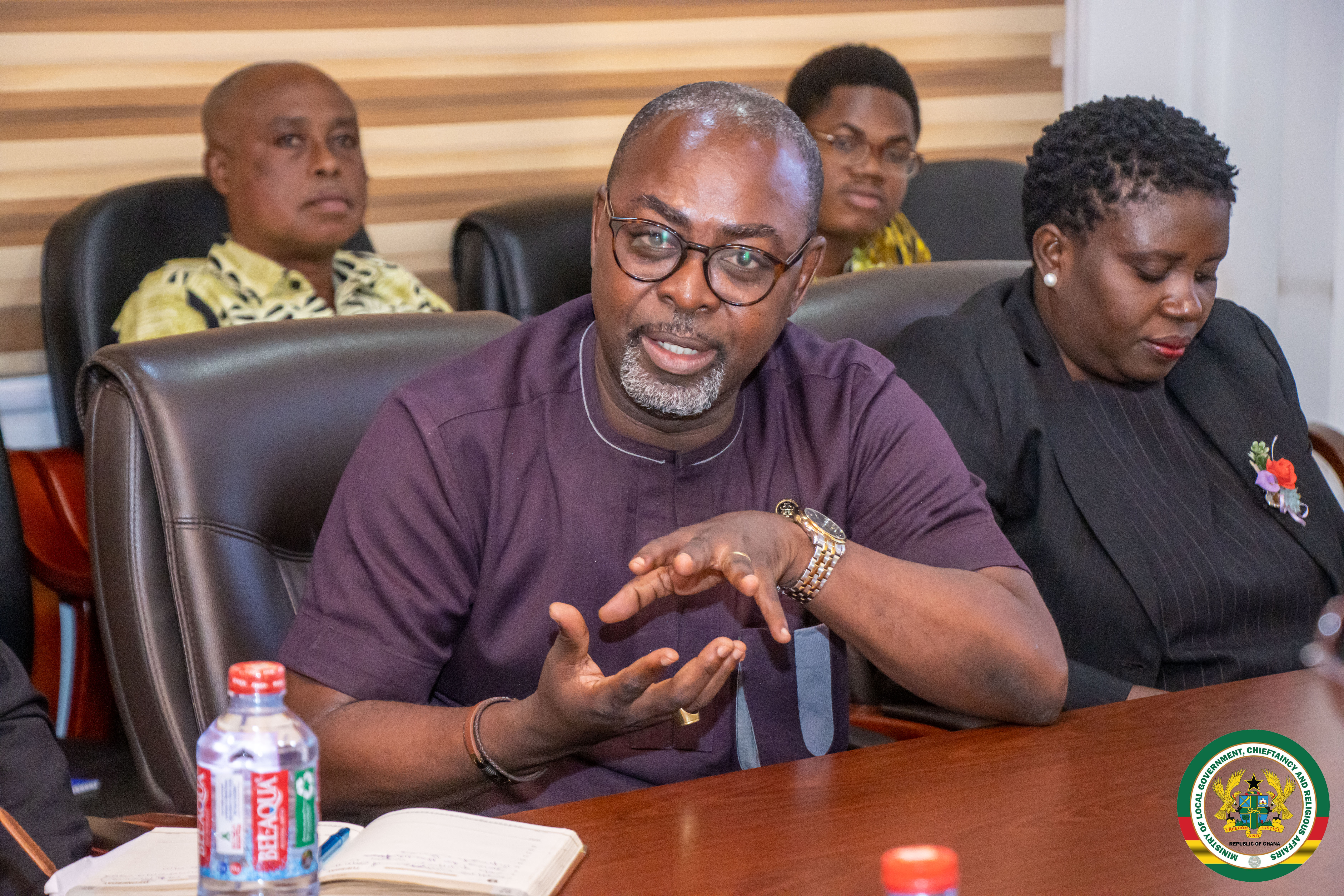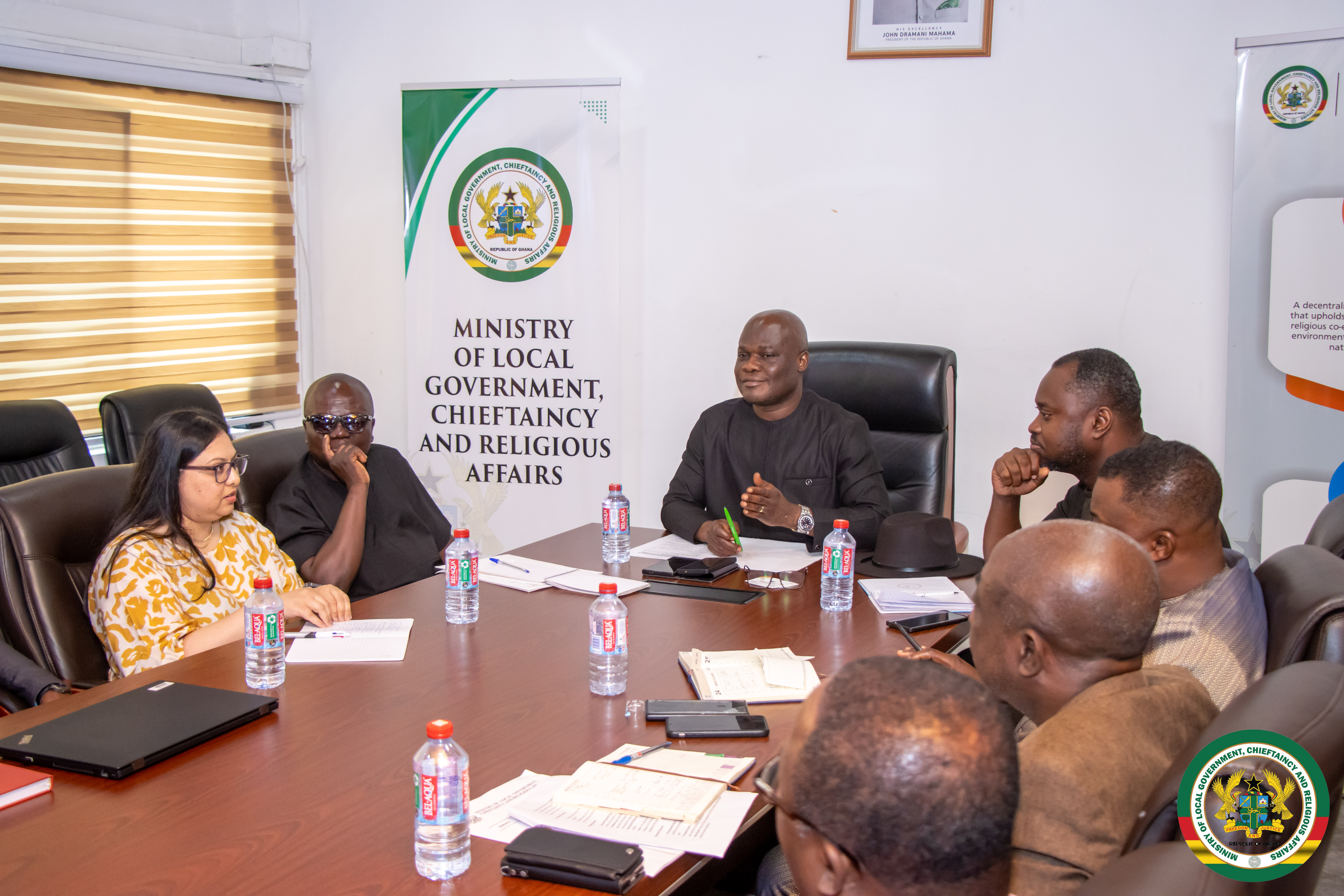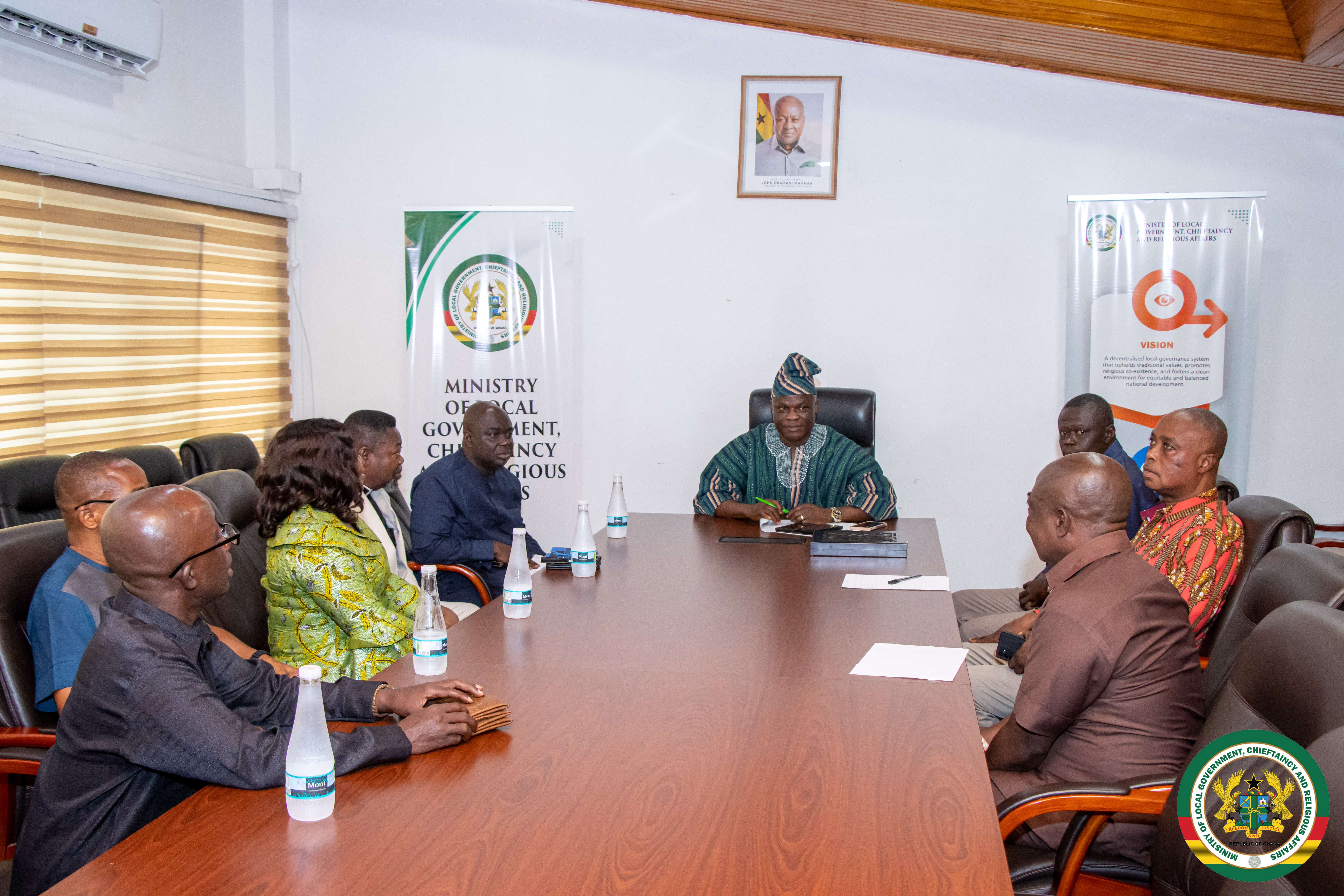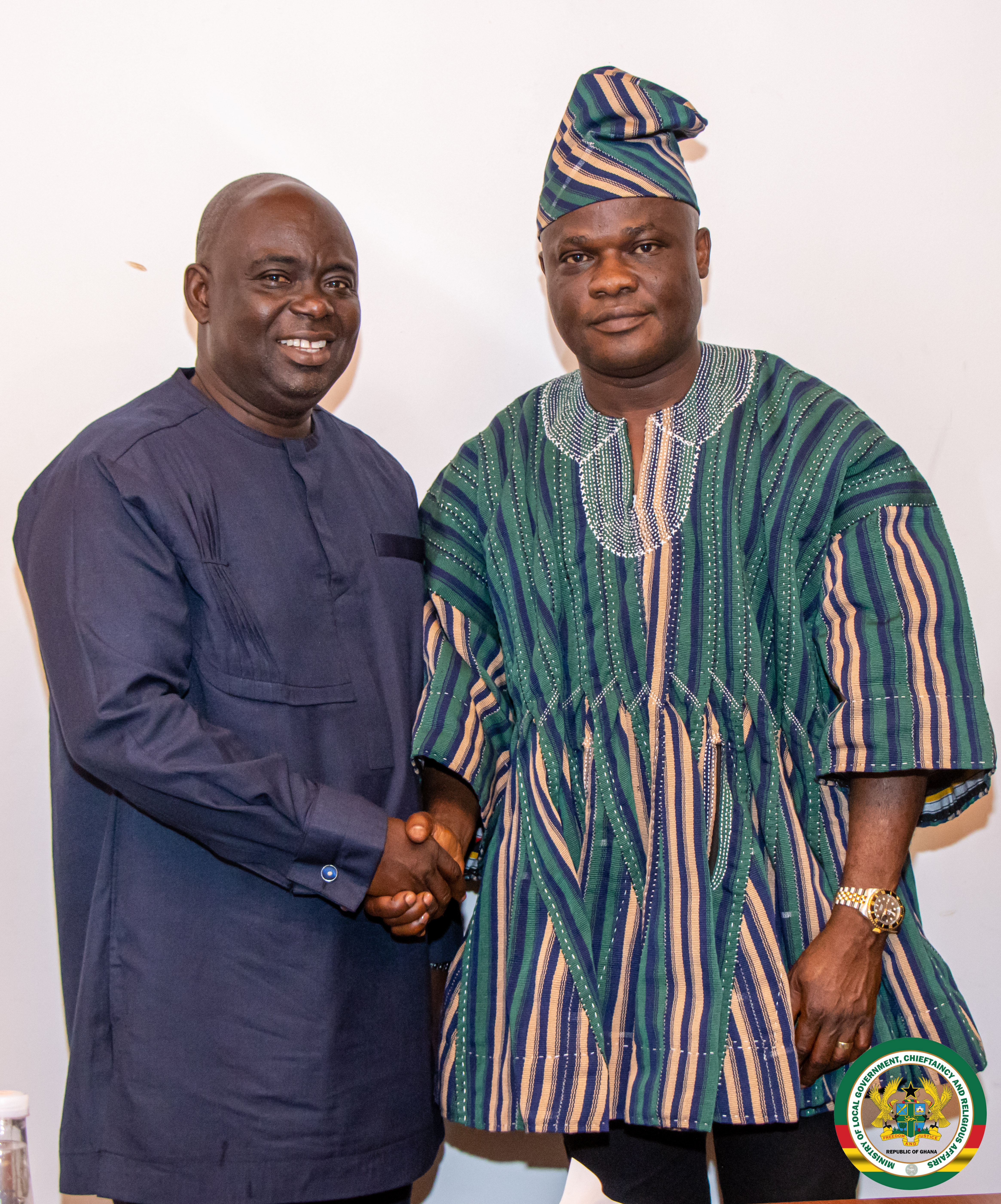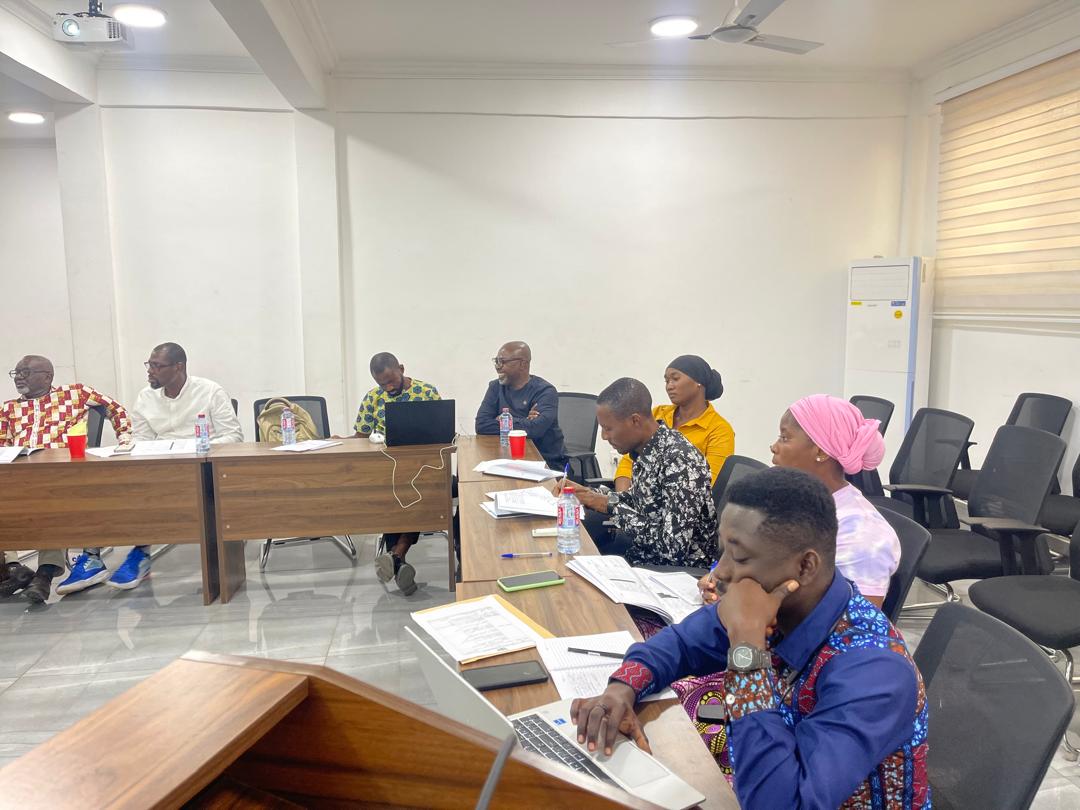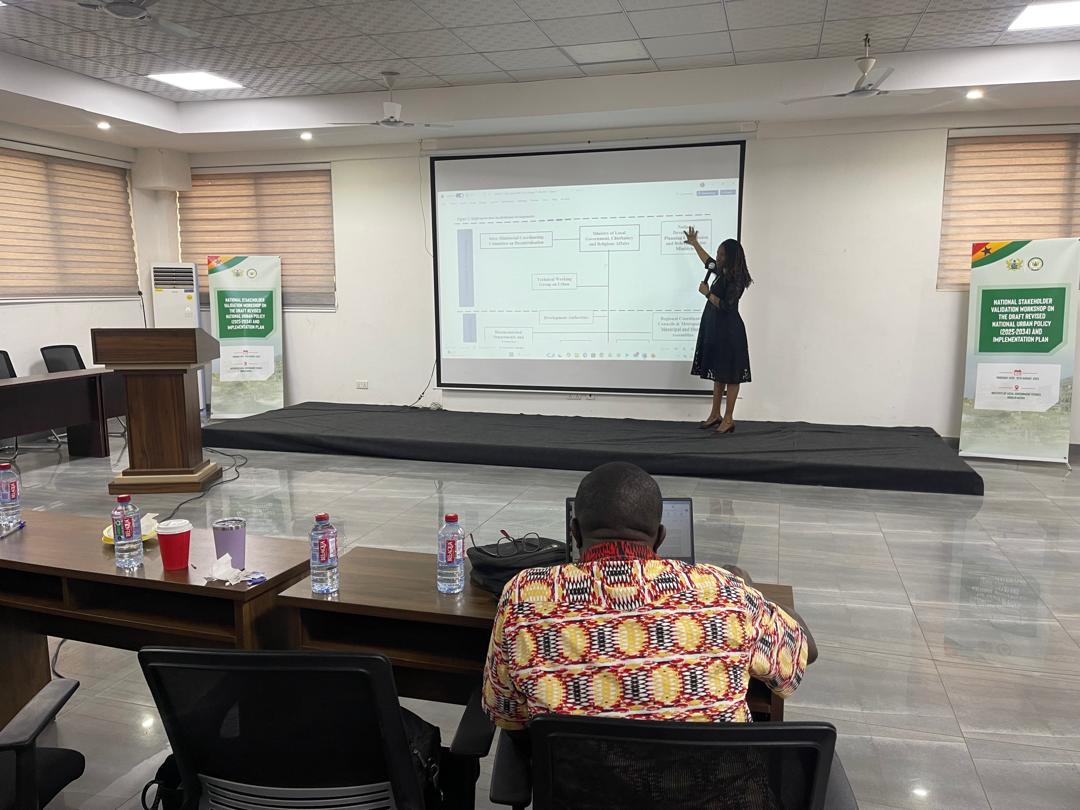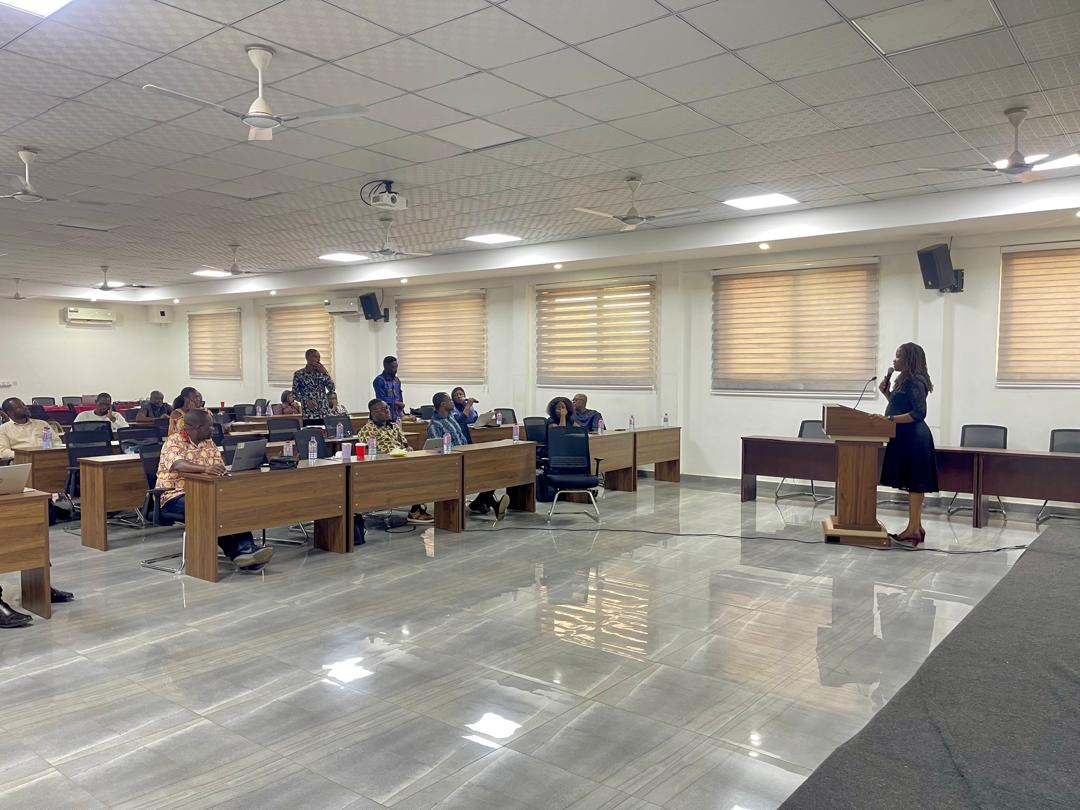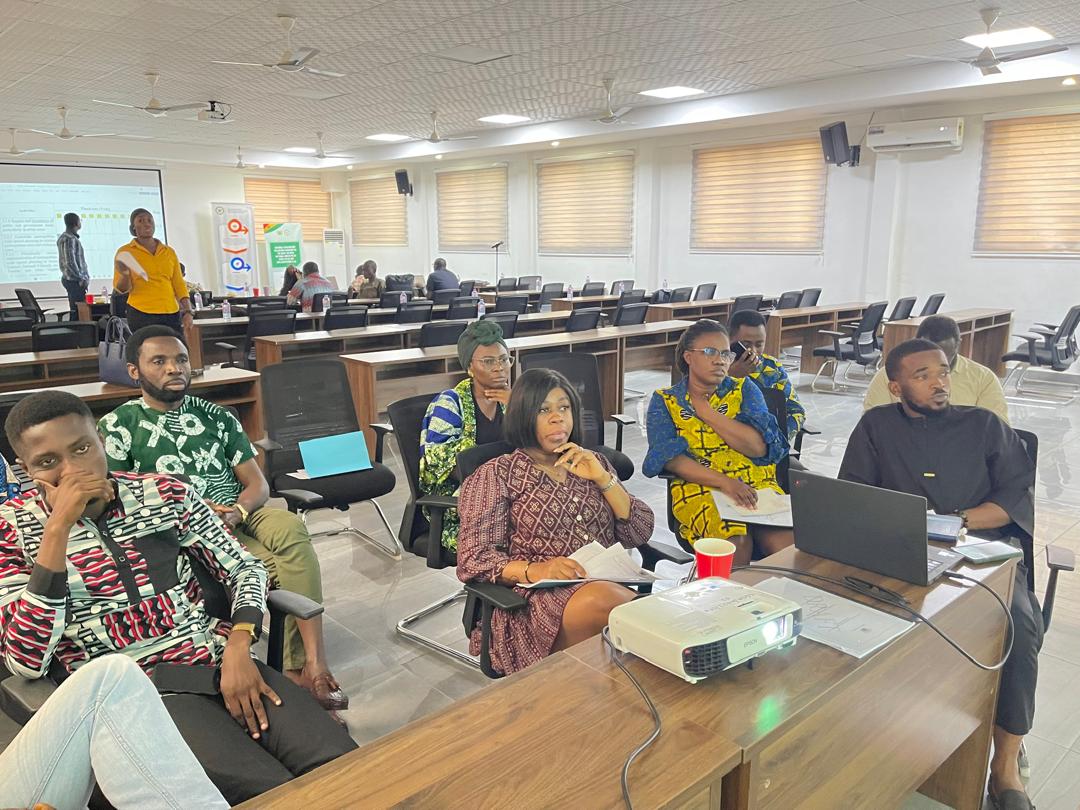The C40 Cities Finance Facility (CFF), a global leader in supporting urban infrastructure projects that drive climate resilience, is extending its expertise to Ghana with a focus on waste management in the Sekondi-Takoradi Metropolitan Area (STMA). A delegation from CFF paid a courtesy call on the Minister for Local Government, Chieftaincy and Religious Affairs to outline their plans and reaffirm their commitment to working with national and local authorities.
CFF helps cities transform climate action plans into practical projects that deliver measurable impact. Their city centred approach ensures that solutions benefit all residents, including marginalised communities, while tackling the urgent challenges of climate change. To date, CFF has partnered with 30 cities across four regions including Mumbai, Medellin, Durban, and Dakar supporting 36 projects in renewable energy, sustainable mobility, water, waste management, and nature-based solutions. Globally, the organisation has mobilised over $650 million in climate investments and is on track to leverage more than $1 billion by 2025.
In Sekondi-Takoradi, CFF is supporting a comprehensive waste management programme aimed at reducing the city’s reliance on landfills. The project targets an 80% diversion of municipal solid waste from landfills, a 20% reduction in greenhouse gas emissions from the waste sector by 2050, and the generation of renewable energy. Beyond environmental gains, the programme will create green jobs, strengthen the livelihoods of both formal and informal waste workers, and tackle the growing threat of plastic pollution and drain blockages that cause flooding.
Through a combination of technical expertise, financial readiness support, and capacity building, CFF equips cities with the tools and knowledge to deliver sustainable change. This includes specialised training, workshops, peer-to-peer learning, and knowledge exchanges to strengthen local institutions.
The courtesy call to the Minister marks an important step in aligning the initiative with Ghana’s broader environmental and development agenda. The partnership between CFF and STMA aims to establish a model for sustainable waste management in Ghana showing that climate action can protect the environment, stimulate economic growth, and improve the quality of life for citizens.
Source : Stephanie Edem Klutsey
Public Relations Unit, MLGCRA


